Note: The following is written by Jamie Geyer, a trip participant on the BEMA Israel 2022 study tour. Part of my sabbatical is leading these trips, and I wanted her to share a bit about how these efforts affect others like her. Being healthy on sabbatical isn’t just an inward work; when done right, it also pours out into others.
I will always cherish my time in the desert following the shepherd. It reminded me of my own deserts in my life. Marty told us that we tend to be people of the eyes who get easily distracted or torn down by the world around us — but Jesus invites us to be people of the ears and to not take the world as we see it, but to quiet and still ourselves so we can hear the strong, gentle voice of our shepherd in the desert. We weren’t able to see a shepherd and their flock on the trip, but I took that image to heart. A shepherd doesn’t lead with force or yelling, but with his voice — his quiet, gentle, but strong voice. I hope we can become people of the ears like Marty encouraged us to be.
One of the spiritual disciplines I have found most helpful over the years is my weekly sabbath day. Even going into a stressful season of grad school, I’m committed to keeping that practice so I can quiet myself and be a person of the ears who knows and follows my shepherd’s voice.
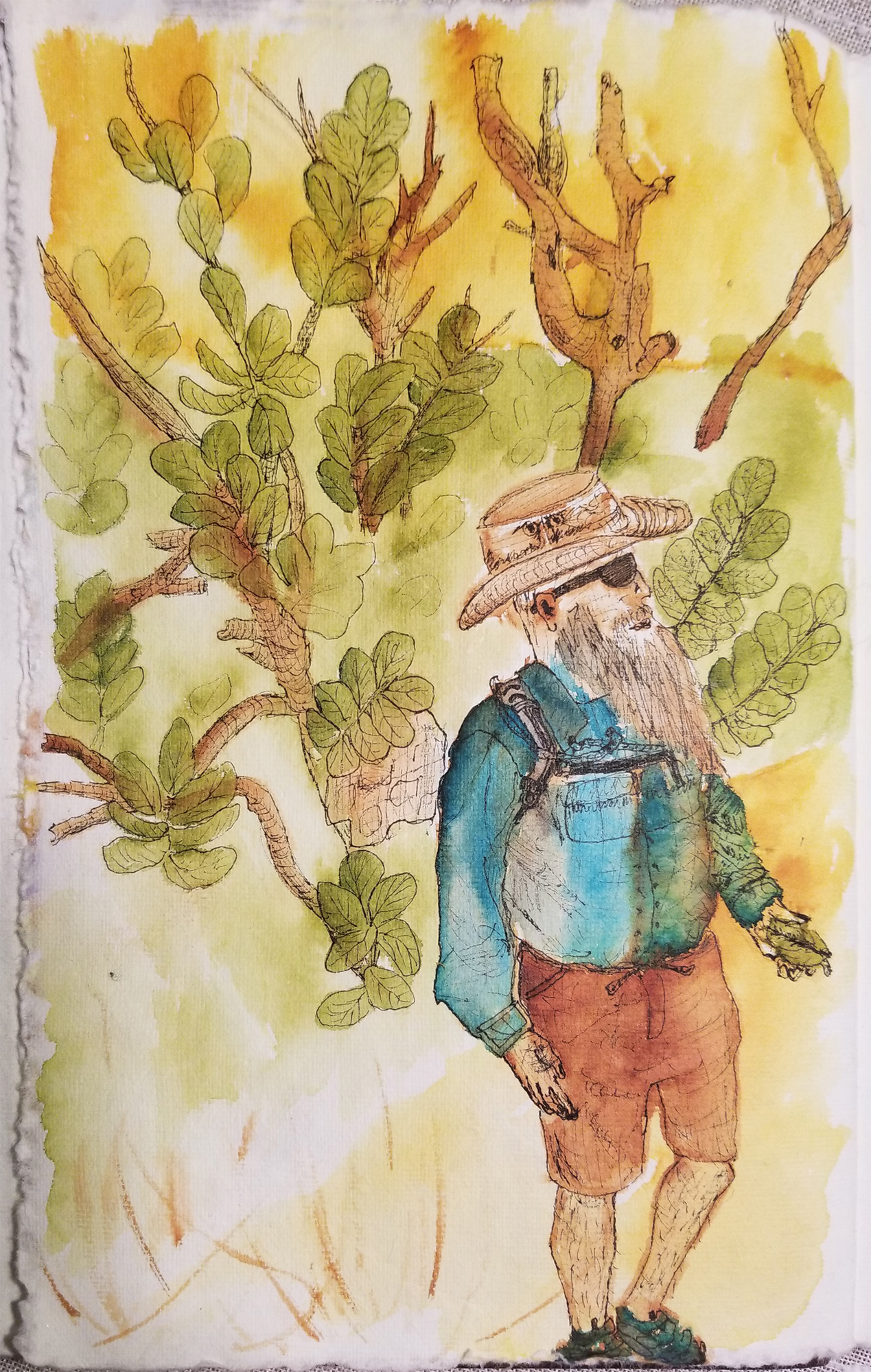
I’ve known Marty for a minute. I met him at Washington State University in 2010 when he was a campus minister with Impact (and a pastor at my local church). This was before BEMA became a podcast, back when it was just a class where a few students met every week to learn about the cultural and historical context of the Bible. Marty taught us that it was OK and even encouraged to ask tough questions and wrestle with the Text in community. My life was forever changed by that beautiful community — my BEMA family. They were there for me during the hardest moments of my life and I will be forever grateful for their friendship and support.
BEMA made Genesis 1 my favorite passage. Marty drilled the message: “The story is good! Trust the story!” He said, “Where do you start a book? At the beginning!” Marty always taught us to look for and love and support the alien, orphan, and widow. I love that message and am going into the field of art therapy to do just that.
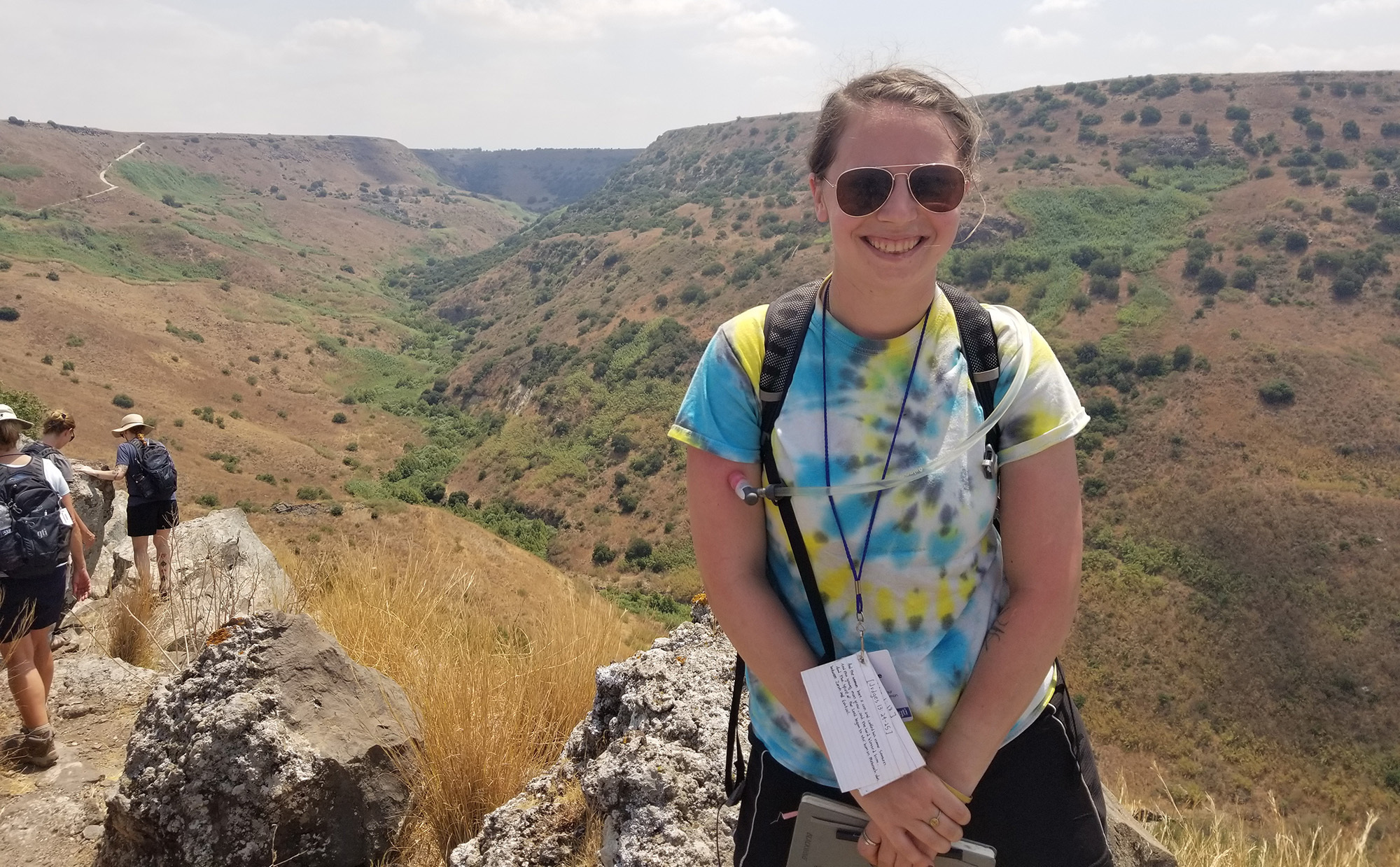
One of my favorite moments of the trip was at Susita (part of the Decapolis) where Marty taught us about the demoniac man who had struggled desperately for years, and how Jesus got out of the boat — against cultural customs — to reach just that one man. I relate a lot to the demoniac man and it was amazing to hear that Jesus got out of the boat, not for a perfect theologian or biblical scholar, but because the man was and is intrinsically loved by Jesus just for existing. The man had no theological training, and yet the simple act of telling his story changed the hearts of an entire city, and eventually the world. I often struggle to think I’m good or worthy enough to make big change. In fact, back in BEMA class days, I always thought BEMA wasn’t for me, but for the A+ Christians, and it took a while before I could see myself as having something worthwhile to bring to the table. Marty said, “Tell your story.” At the Decapolis, I cried because I was overwhelmed with gratitude for the people back at Washington State who got out of the boat for me. They were my En Gedi — my waterfall in the desert.
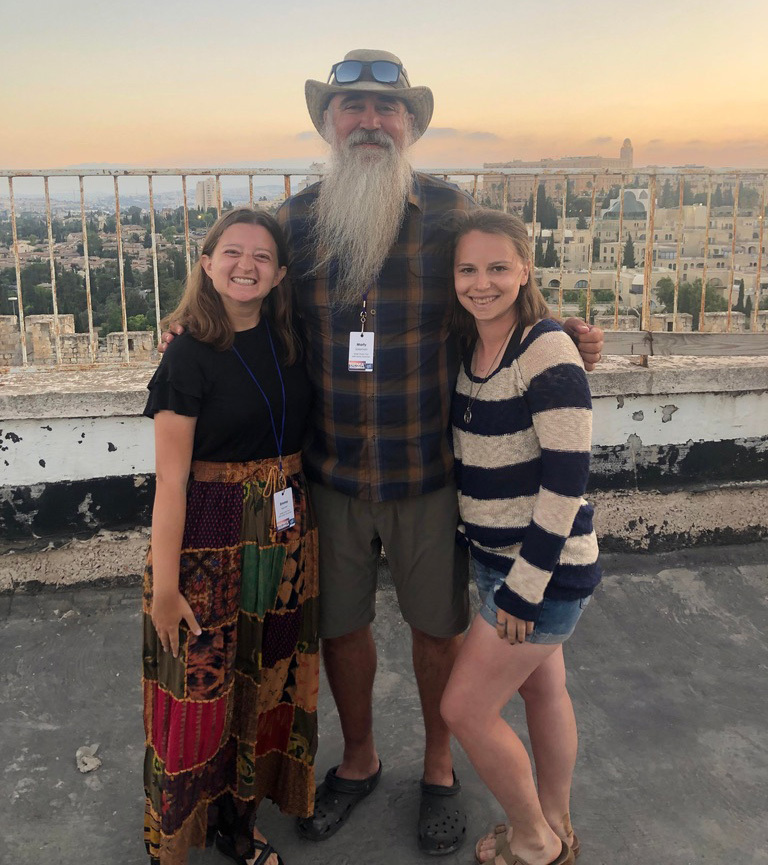
Marty also talked about David and Goliath and how David had nothing to offer in terms of military advantage or brute strength, but he was brave enough to throw his small stones and God was able to use that courageous act to defeat Goliath. Marty said that even if we feel we have nothing to offer logically to a situation or problem, to throw our stones anyway. Even the smallest act of faith can be used by God immeasurably more than a perfectly polished and planned out theory that is never put into action. I sometimes struggle with wanting things to be perfect before I try them, and I do strive for excellence, but God invites us to remember that it’s Him who makes our actions excellent. Throw your metaphorical stone; take your shot and have faith that God will move as you do.
I'm so grateful for the amazing and dynamic community that was formed on this trip. One of the main pillars of BEMA is community, and on the last night Marty defined that as not just a bunch of people who agree with everything you say, but that real community is between people who may disagree on certain things, but agree that they want to love God and love others and become people of the Text. They can treat each other and their differences of opinion with kindness and empathy and curiosity, which is rare and refreshing in our world today. I saw real Kingdom community modeled on this trip. It impacted me immensely and I hope I can build that in my life back home. Life can sometimes be disheartening, but I’m so grateful to have met kind, caring, compassionate, genuine people. It really refreshed my faith in the global community.
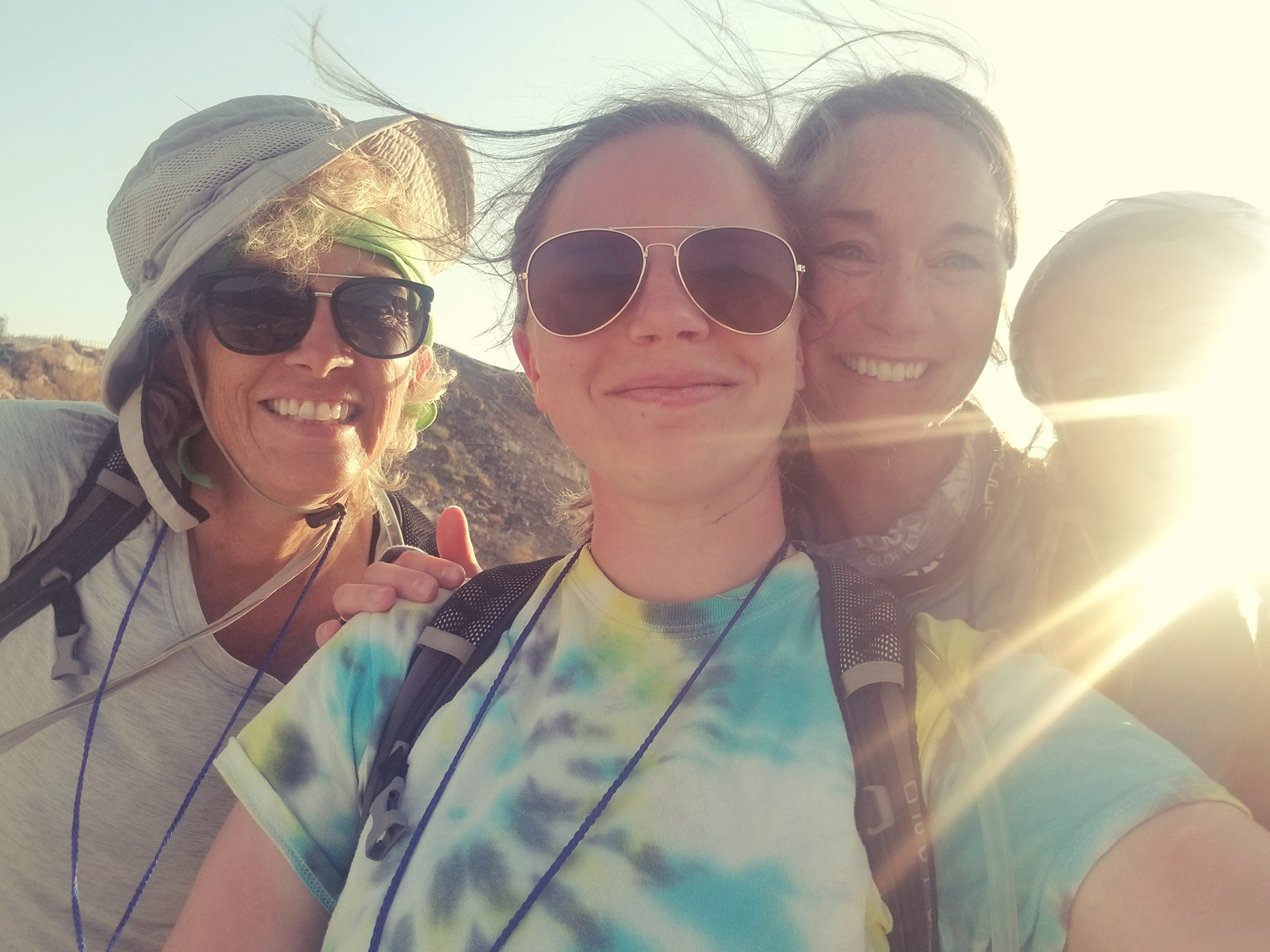
Another memorable lesson was that if you encounter thorns, then it means you’ve gone off the path. The question I’m still wrestling with is how to tell the difference between things being hard because you’ve gone off the path, and life just being hard even while faithfully walking the path. I pray for that discernment and hope that living in community can help me decipher that.
The lesson about the parable of the seeds, or the parable of the soils (as Marty calls it), was also very impactful. As a type 6, upon hearing the lesson I quickly identified the humbling truth that I tend to be the soil with the thorns where the worries of this world grow up and choke out any spiritual growth that I had eagerly taken in like a sponge. I often struggle getting distracted by the many worries of this world. I’m so tired of living my life paralyzed by fear. I pray God can help me become a person of the ears and not someone distracted by the weeds and thorns. God, help me have good soil and deep roots and trust and show that the story is good!
Marty talked about spiritual disciplines and how even 2-degree shifts can make a huge difference down the road, and I’ve been working on integrating those into my life. I’ve been saying the “Jesus Shema” that we prayed every morning and night on the trip, and someone suggested drawing could be a spiritual discipline — great news since I find so much life and reflection in that. I’m working on writing out and memorizing the Text because Marty sent us away with a fire to haggah (passionately devour like a lion devours his prey) the Text.
Marty called us to bring shalom to chaos. There are two kingdoms at work in the world — shalom and empire. God calls us to the kingdom of shalom to bring heaven crashing into earth. To be on the lookout and support the alien, orphan, and widow (the outcast, the marginalized, the “those people”), we must remember that God loves even the people we think are so far from Him. Trusting that the story is good and using your good eye to decide if we want to live in a worldview of scarcity or abundance. I tend to gravitate toward thinking I live in a world of scarcity after going through scarce times in my life. Even though God has blessed me and shown up a million times since then, and things are better, I still get frustrated with my tendency to slip back into a scarcity mindset. But I could bless the world a hundred times over if I used my good eye and saw the world as one of abundance rather than scarcity. Can I trust that God will provide, even when I cannot see the next step? I want to always be asking myself, “Who am I, and what am I doing here?” Is it loving God, loving others, or becoming a person of the Text?
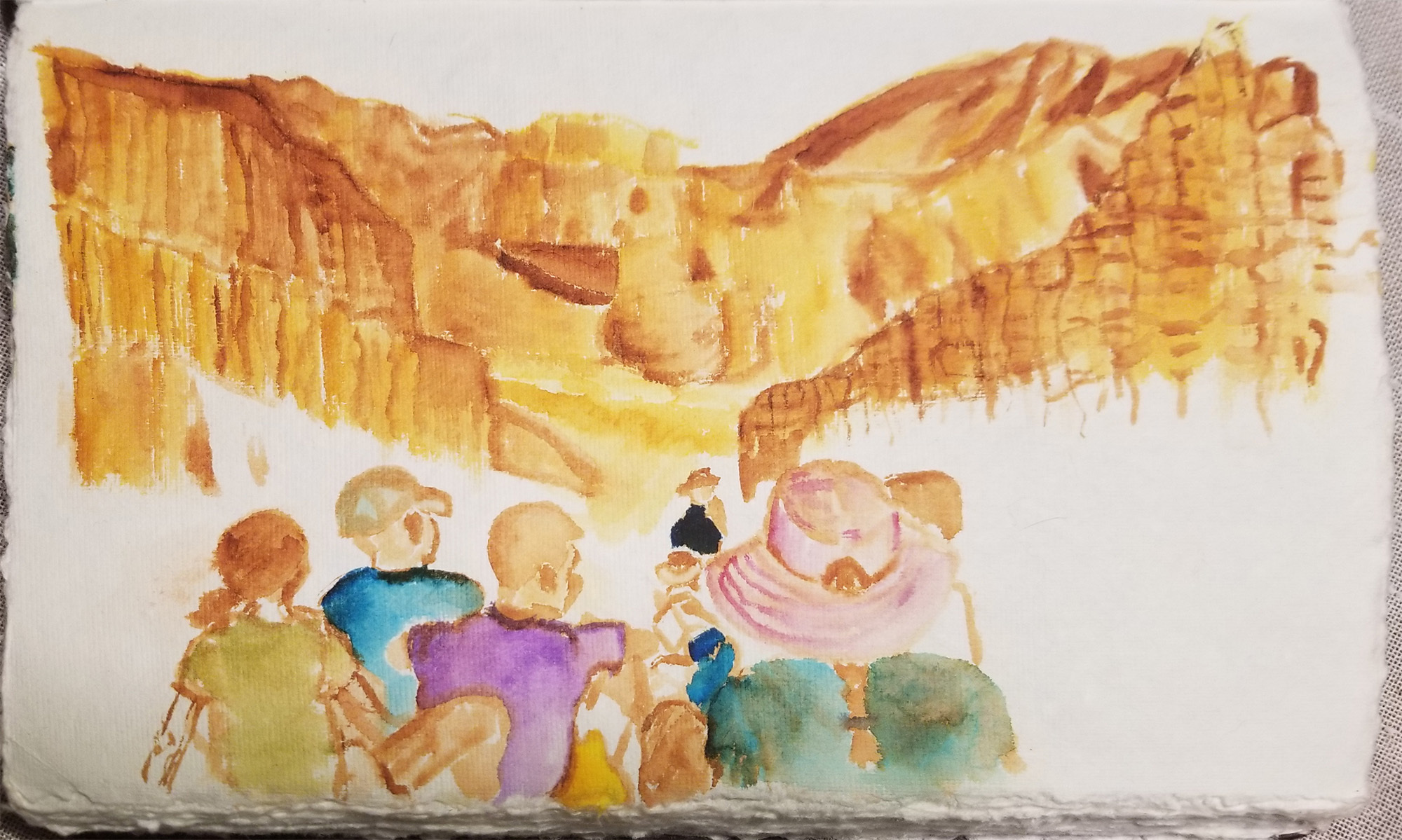
I desperately want to be shade in the desert. I want to be a rotem bush.
Marty showed us how to follow him and walk the path in the desert and reminded us to help the people behind us. I hope I can walk the path faithfully, and make it easier for the people coming after me.
